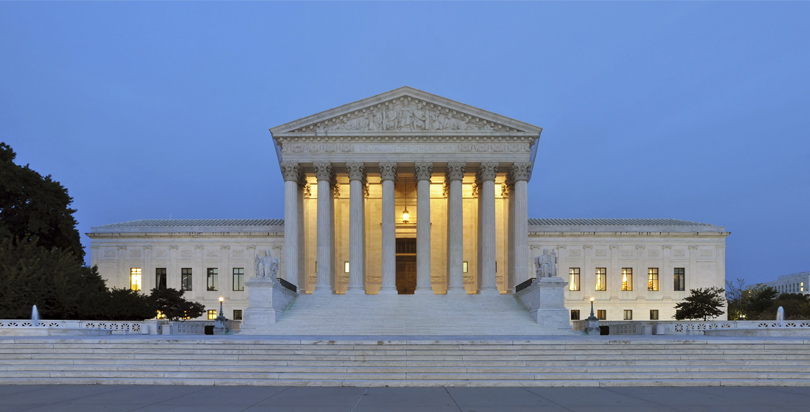This essay is published in partnership with Education Next; click to see their deeper analysis of Friedrichs v. California Teachers Association
In Friedrichs v. California Teachers Association, the Court will examine the legality of “agency” fees—payments in lieu of dues that public-sector unions in 21 states are allowed to charge workers who decline to join their ranks. The unions call them “fair-share” fees, arguing that every teacher in a bargaining unit benefits from collective bargaining, so every teacher should chip in to cover the costs.
Public-school teacher Rebecca Friedrichs and her fellow plaintiffs beg to differ. They maintain that the compulsory fees violate their First Amendment rights to free speech and free association. Supreme Court watchers on the left and right agree that the Court is likely to decide for the plaintiffs on these grounds.
No one can be forced to join a teachers union or contribute to its political activities, so unions can only compel nonmembers to help pay for nonpolitical activities. But there’s the rub. It’s the unions themselves that define what’s “nonpolitical” and thus “chargeable” to fee-payers. According to the National Education Association (NEA), these activities include collective bargaining,preparations for strikes, grievance processing, relevant communications with bargaining unit members, and costs associated with the union’s representative bodies.
The plaintiffs counter that collective bargaining itself is intrinsically political. Furthermore, many of the activities the NEA defines as nonpolitical could be construed as quite the opposite.
Consider, for instance, the expenses “associated with the unions’ representative bodies,” which are chargeable to fee-payers because they cover activities related to the governance and administration of the union. However, conducting union business—some of which is political in itself—is not the only activity that takes place during a meeting of union representatives. At the annual NEA Representative Assembly, delegates are solicited for contributions to the union’s political action committee (PAC). In fact, the NEA collects the bulk of its national PAC money during that four-day event. Fundraising is constant, auctions and raffles are held, and the most generous contributors are lauded from the podium. So, while fee-payers do not contribute to the PAC, their fees help make this PAC fundraising possible.
Fee-payers do have an opportunity to contest what the union decides is chargeable—by participating in a hearing before an arbitrator, who is paid by the union. The documents related to the union’s calculations are presented to the objecting teachers on the day of the hearing. The complainants have no independent means to verify the data, and arbitrators rule in favor of the union in nearly every instance.
Nonmembers can then take the union to court, on their own dime and their own time. As the unions will attest, public school teachers are short on both.
A decision for the plaintiffs in Friedrichs won’t give teachers more time, but it may well lead to better pay, at least for many. That’s because collective bargaining does not in fact benefit all workers in a bargaining unit: many individuals make tangible sacrifices under union contracts. Math teachers might make less than they could because the union insists they be paid the same as physical education teachers—even if there is a scarcity of math teachers and a glut of PE teachers. A teacher with seven years of experience makes less than a teacher with 10 years, regardless of relative skills, performance, or any other factor directly related to student learning. A teacher with a bachelor’s degree makes less than a teacher with graduate credits, even if those credits don’t measurably apply to the work they do.
An individual who eschews union membership might well ask: If I am getting a bum deal as a public school teacher, should I be forced to pay the organization that negotiated that deal, and which was elected years ago by people who no longer work here?
In the coming months, the Supreme Court will effectively answer that question. And if the justices side with Friedrichs, teachers won’t only have their political rights back. They will also have more leverage and flexibility to push for a “new deal” — one that is fair to them, and not just to union leaders.
Get stories like these delivered straight to your inbox. Sign up for The 74 Newsletter


;)
